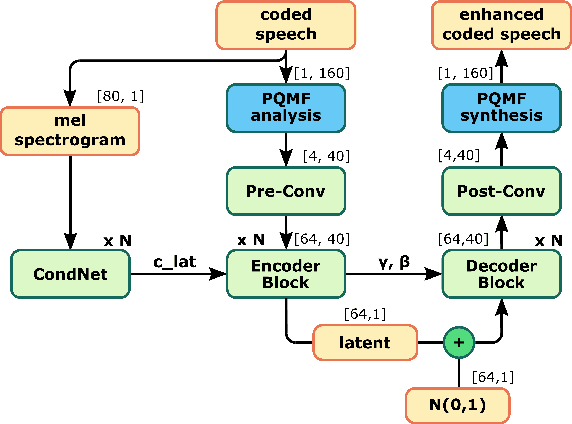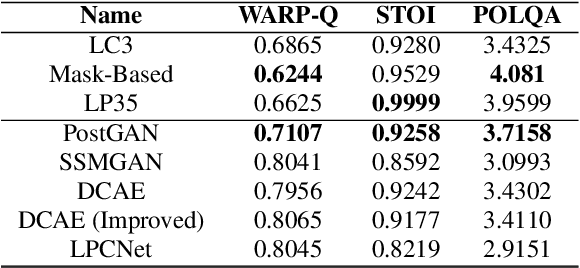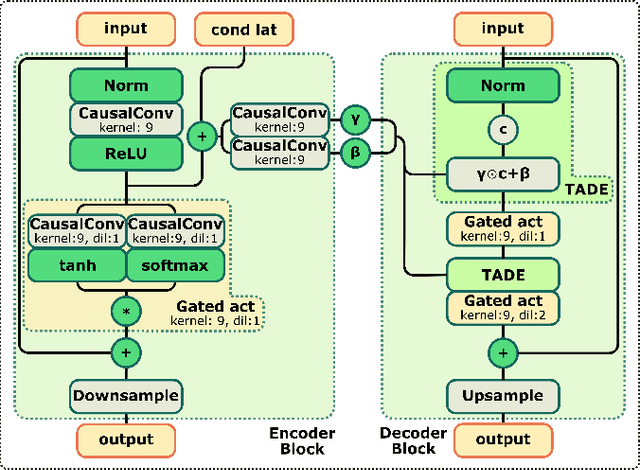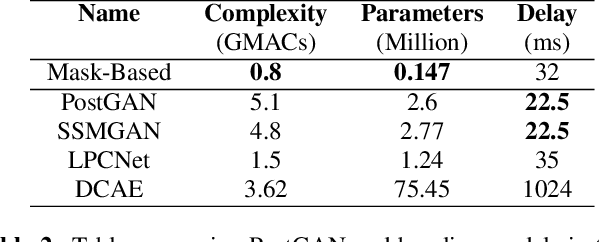PostGAN: A GAN-Based Post-Processor to Enhance the Quality of Coded Speech
Paper and Code
Jan 31, 2022



The quality of speech coded by transform coding is affected by various artefacts especially when bitrates to quantize the frequency components become too low. In order to mitigate these coding artefacts and enhance the quality of coded speech, a post-processor that relies on a-priori information transmitted from the encoder is traditionally employed at the decoder side. In recent years, several data-driven post-postprocessors have been proposed which were shown to outperform traditional approaches. In this paper, we propose PostGAN, a GAN-based neural post-processor that operates in the sub-band domain and relies on the U-Net architecture and a learned affine transform. It has been tested on the recently standardized low-complexity, low-delay bluetooth codec (LC3) for wideband speech at the lowest bitrate (16 kbit/s). Subjective evaluations and objective scores show that the newly introduced post-processor surpasses previously published methods and can improve the quality of coded speech by around 20 MUSHRA points.
 Add to Chrome
Add to Chrome Add to Firefox
Add to Firefox Add to Edge
Add to Edge